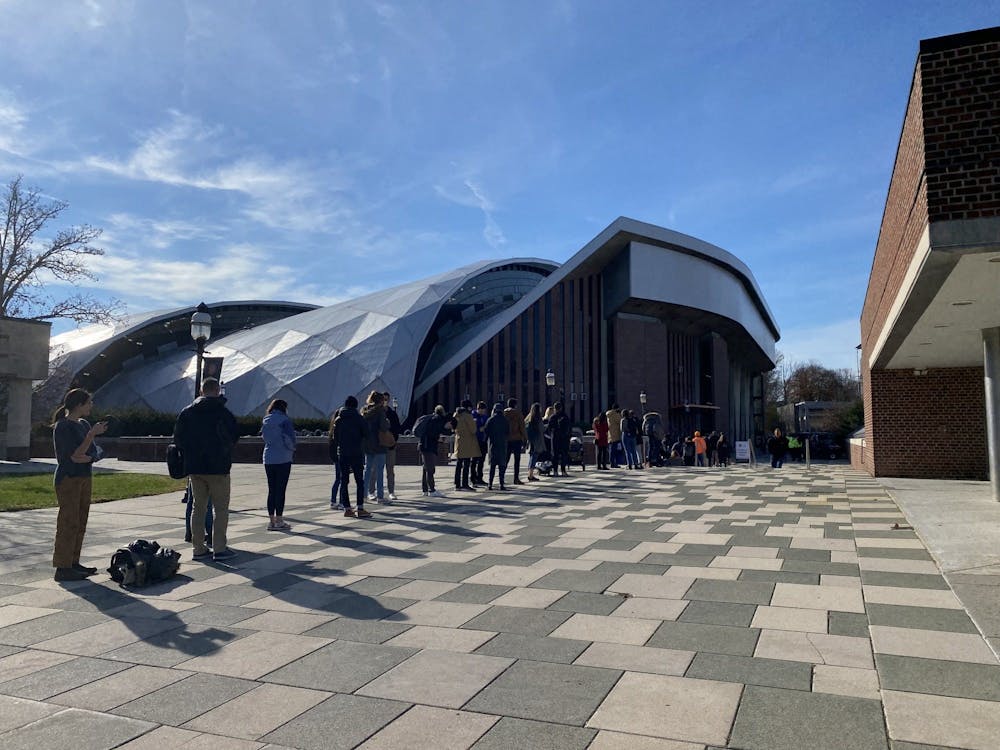The following is a guest contribution and reflects the author’s views alone. For information on how to submit an article to the Opinion Section, click here.
The COVID-19 pandemic has repeatedly required Princeton University to take unprecedented public health action to continue providing a valuable educational experience to its undergraduate and graduate students. To this end, the University has made several mandatory measures — including indoor face-coverings, weekly PCR testing, and vaccinations — to keep transmission low enough to allow for in-person teaching and a return to some version of the traditional college experience.
But all of this comes at a cost. For example, in the case of vaccine mandates, Princeton University students and employees lost the autonomy to make their own medical decisions based on the evidence at hand. Any measures put in place by the University should therefore be accompanied by a compelling argument that on-campus transmission will be curbed, as well as an acknowledgement of the trade-offs at play.
On Dec. 16, the University announced a vaccine booster mandate to combat transmission of the omicron variant, a heavily mutated virus particularly skilled at evading vaccine-conferred immunity. Given this characteristic, the burden of proof is particularly heavy on the University to demonstrate that a booster shot will in fact minimize omicron transmission. Instead, the mandate is justified in a single sentence in the body of the email: “While reports about the Omicron variant are concerning, early data indicate that COVID-19 boosters bolster protection against infection and severe disease.”
They provided no references, no supporting data, and no email signature that would implicate an individual person or group of people in the decision. A trip to the University website includes no elaboration on the decision-making process or the evidence used to reach their conclusion. Even the official “COVID-19 Vaccination Policy for Employees” document on the Office of Environmental Health and Safety website, sponsored by the Provost and Executive Vice President, provides no further justification.
Several research preprints posted around the time of the University announcement present data showing that a COVID-19 booster shot may indeed be an effective measure against contracting the omicron variant. Serum samples obtained from fully vaccinated or previously infected adults were found to be severely impaired in their ability to neutralize the SARS-CoV-2 omicron variant in in vitro assays. On the other hand, serum from people that also received a booster dose appears to trigger a moderate cross-neutralization activity against the omicron variant. The takeaway is that while boosters are less effective against omicron than they are against the delta variant, they may confer enough immunity to prevent infection or severe illness.
While preliminary, this evidence supports the line of reasoning that mandatory immune system fortification via a booster shot may hinder omicron transmission on campus and allow the University to continue with in-person teaching and learning through the spring semester. That being said, the University presented no argument for this case, and instead left us to either take them at their word or sift through scientific preprints to back-justify their decision for ourselves.
When imposing a medical mandate on the entire University population, the rationale should be well-cited and defensible by the responsible parties. In this case, the responsible parties failed to present any concrete evidence, instead pointing to unidentified “early data” and conveniently neglected to add their names to the bottom of the email. I am sympathetic to the fact that public health officials, university administrators included, have been forced to make quick decisions while working with limited information as well as rapidly evolving conditions on the ground.

But this does not relieve them of the responsibility to present cogent arguments in defense of their decisions. This lack of rigor and transparency does nothing to increase trust in our university health officials, nor educate the community on the nuanced public health situation at hand. What could have been an opportunity to educate and engage ended up being yet another medical decree via an anonymous email.
Evan Underhill is a third-year graduate student studying Chemical and Biological Engineering from Bedminster, N.J. He can be reached at evanu@princeton.edu.









